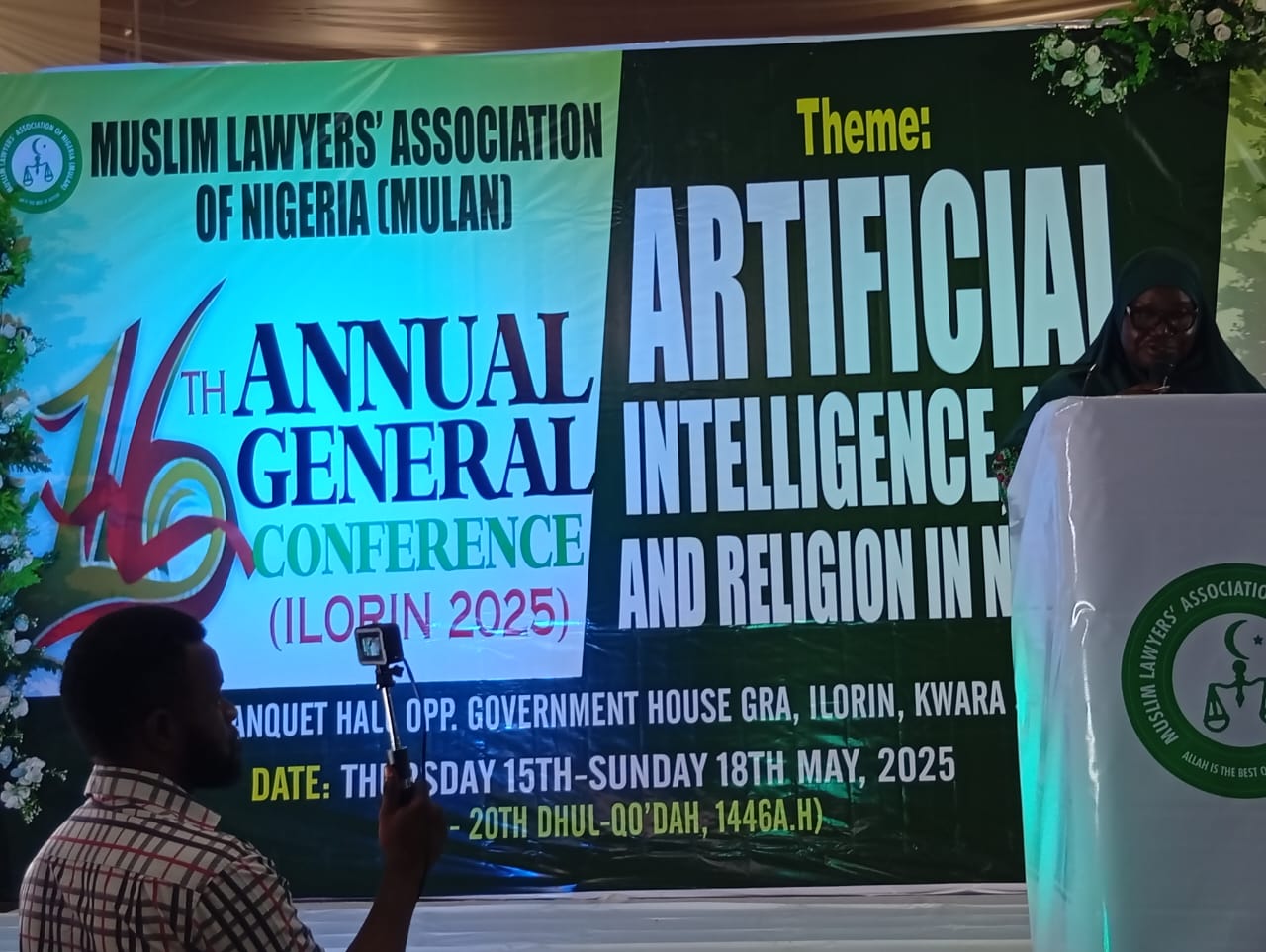The Chief Justice of Nigeria (CJN), Justice Kudirat Kekere-Ekun, has urged legal practitioners to approach the integration of Artificial Intelligence (AI) into Nigeria’s legal system with caution and cultural sensitivity to preserve the sanctity of the nation’s judicial framework.
Justice Kekere-Ekun gave the advice while addressing participants at the 16th Annual General Conference of the Muslim Lawyers’ Association of Nigeria (MULAN), held in Ilorin, Kwara State. Themed “Artificial Intelligence, Law and Religion in Nigeria,” the conference explored the intersection of emerging technologies with legal and religious values.
Represented by the Presiding Justice of the Court of Appeal, Ilorin Division, Justice Ridwan Abdullahi, the CJN described AI as a transformative tool capable of enhancing legal processes. However, she warned that its application must be guided by critical thought to avoid conflicts with Nigeria’s deeply rooted cultural and ethical values.
“Artificial intelligence represents the replication of human intelligence in machines to solve problems and improve efficiency. While its potential is undeniable, we must ensure it does not disrupt our societal norms or legal traditions,” she said.
Justice Kekere-Ekun emphasized the need for the Nigerian legal system to keep pace with global developments in AI without compromising established judicial principles.
Also speaking at the event, Kwara State Governor AbdulRahman AbdulRazaq, represented by the Attorney General and Commissioner for Justice, Barrister Senior Ibrahim, encouraged Muslim lawyers to leverage AI in legal research and practice. He reaffirmed his administration’s commitment to strengthening the judiciary and enhancing the delivery of justice.
Delivering the keynote address, former Minister of Communications and Digital Economy, Professor Isa Ali Pantami, called for a comprehensive legal framework for AI deployment. He urged the National Assembly to enact a National Artificial Intelligence Development and Deployment Act to regulate the ethical use of AI, particularly in preventing cybercrime and digital exploitation.
Professor Pantami also advised Muslim lawyers to uphold Islamic ethical standards in the application of AI technologies within their professional responsibilities.
The Emir of Ilorin, Alhaji Ibrahim Sulu-Gambari, represented by Professor Yusuf Ali (SAN), added a moral dimension, urging lawyers to deploy AI in service of humanity and to promote justice and religious harmony.
In his welcome address, MULAN National President, Saidu Muhammed Tundun-Wada, highlighted the immense potential of AI to revolutionize legal practice. He noted that AI could expand access to justice, improve legal service delivery, and offer innovative solutions to complex legal challenges.
The conference brought together legal experts, scholars, and policymakers to chart a responsible and inclusive path for the adoption of AI in Nigeria’s legal and religious landscapes.












Leave a Reply